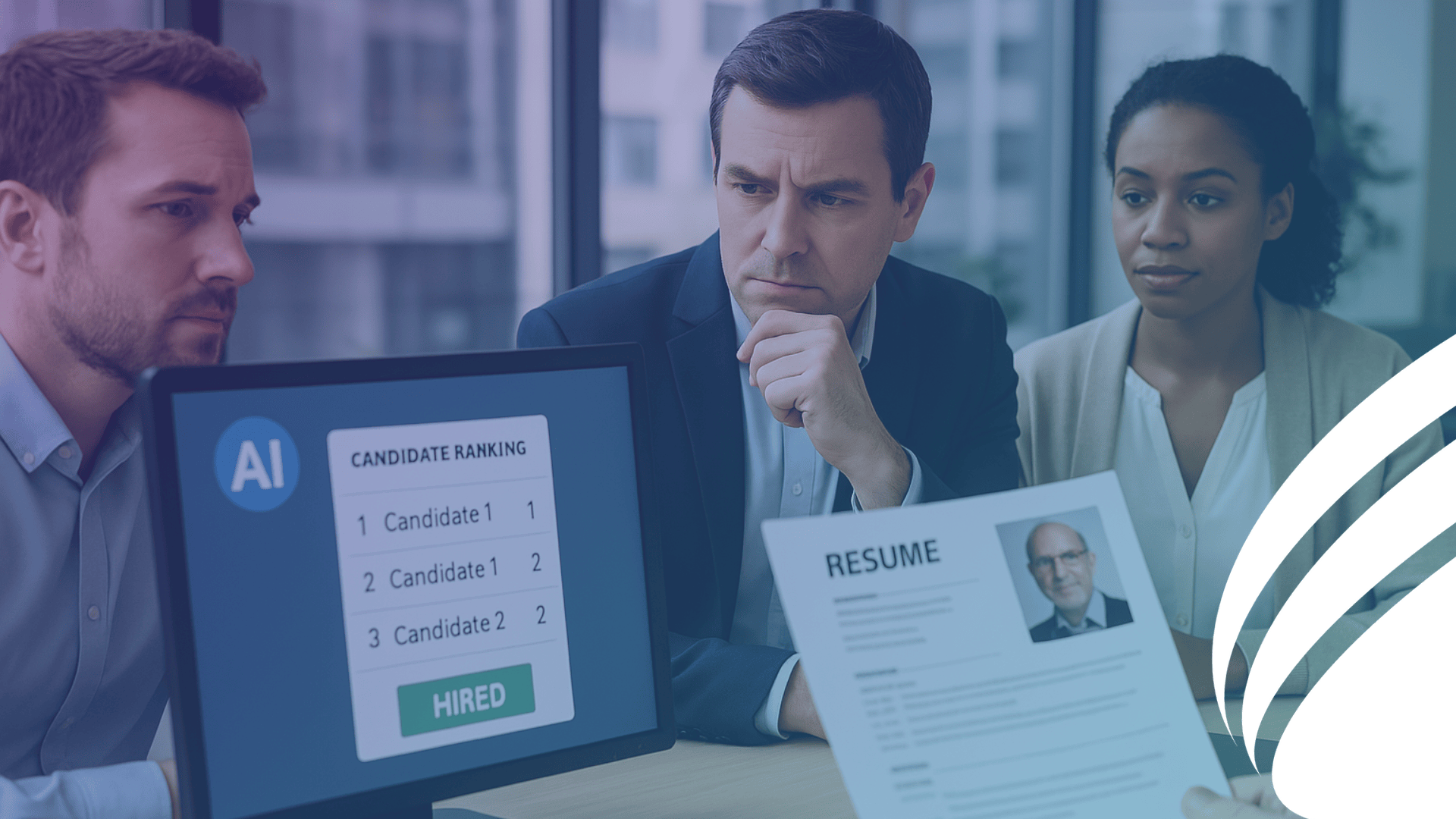
A rare, highly qualified, and experienced professional applies to a tech company. However, the recruitment algorithm ranks them at the bottom of the list. The reason? No clear explanation. Pressed for time, recruiters trust the machine. “The tool rejected them, so they must not be a fit.” End of story. Human judgment fades away. The decision is made — by a system whose criteria are barely understood.
This scenario is far from uncommon. It exemplifies a very real phenomenon: cognitive complacency. When excessive trust is placed in automated tools, individual thinking diminishes. Recommendations are followed, protocols are executed, and processes are applied without question.
It’s the silent — yet powerful — downside of our digital transformation. Behind the promises of efficiency and objectivity, AI is subtly shifting our culture towards passive compliance, where ethics, common sense and critical thinking start to fade. And that erosion of thought is a direct threat to the foundations of any healthy organisation: integrity, respect and accountability.
The ethical pitfalls of automated systems
AI may boost productivity, but it also opens the door to subtle, high-impact ethical flaws. Here are four major risks that could undermine your team's moral compass:
The "black box" effect
Many algorithms operate as closed enigmas. We know what they do, but not how. This lack of transparency disconnects people from the reasoning behind their decisions. When something unfair happens, it’s easy to say: “It wasn’t me, it was the algorithm.” In this grey area, moral responsibility quickly disappears.
Dependence on decision-making systems
Cognitive offloading — relying on tools to handle complex tasks — reduces the mental effort we put in. A study by SBS Swiss Business School found that 62% of regular AI users scored 15% lower than average on critical thinking. The consequences? A culture where passive compliance replaces good judgement and healthy debate.
Amplified bias
Beyond dulling our judgement, over-reliance on AI can lead to automation bias. In fact, 43% of professionals admit they no longer double-check AI outputs, even in their area of expertise. In HR, that might mean unconsciously reproducing discrimination — excluding atypical profiles, for example. Every unchallenged algorithmic decision reinforces systemic bias, and chips away at your team’s ability to spot it.
Constant surveillance
To work effectively, AI needs data — often lots of it. That can mean intrusive monitoring of behaviour, performance, and interactions. Employees end up feeling watched around the clock, without knowing who’s looking, why, or how that data will be used. This one-way transparency breeds mistrust and stifles engagement.
If left unaddressed, automated systems can become vectors of ethical complacency. People stop thinking critically and simply follow. And the qualities that make teams thrive — discernment, dialogue, shared responsibility — quietly vanish.
Management: the antidote to cognitive complacency
Thankfully, there’s a powerful lever for change: management. Managers are on the frontline when it comes to keeping ethics alive. Here’s how they can become champions of active moral awareness:
Reignite critical thinking
Encourage your teams to challenge systems instead of blindly following them. Organise group discussions around real-life cases where tech creates ethical dilemmas. Celebrate those who ask the tough questions — even if it shakes things up.
Make AI understandable
Demystify the tools. Offer simple, accessible training on how algorithms work and what their limitations are. When people understand the tech better, they’re more confident using their own judgement.
Create safe spaces for discussion
Set up open channels where anyone can voice doubts, raise questions, or flag ethical issues. Raising a concern isn’t a threat — it’s a chance to make things right before it’s too late.
Put power back in people’s hands
Involve teams in the decisions about the tools they’ll use. Whether during the design phase or when adapting a new system, their input boosts moral ownership. People protect what they’ve helped build.
Embedding AI ethics: a strategic imperative
Ethical integration isn’t just a tick-box exercise — it’s a governance issue, and a pillar of resilience. Here are a few practical ways to get there:
Start early
Before rolling out new tech, ask the right questions. What are the human, social, and cultural impacts? Who might be affected? Run an ethics review from the start.
Set safeguards
Don’t let algorithms run unchecked. Set up interdisciplinary ethics committees to define limits and adjust systems on an ongoing basis.
Rethink training
Tech skills alone won’t cut it anymore. Add training on cognitive bias, data protection, and ethical decision-making in a digital world.
Encourage lifelong learning
Tech evolves fast — and your people need to stay sharp. Share feedback, promote cross-team learning, and create a culture where people learn to do things well, not just quickly.
Ethics as a performance driver
AI-related ethics incidents now carry major financial and reputational risks. Transparency and trust are turning into real competitive advantages.
Tools like ETIX, developed by Central Test, offer tangible ways to assess and strengthen professional ethics across your teams. By measuring how likely your people are to behave ethically, these assessments give you vital insights to steer your organisational integrity strategy.
In the age of AI and widespread automation, forward-thinking leaders aren’t wondering whether to invest in ethics — they’re weighing up the risk of not doing so. Because making ethics a strategic asset isn’t just about compliance. It’s about building a workplace that’s healthy, high-performing, and fundamentally human.





